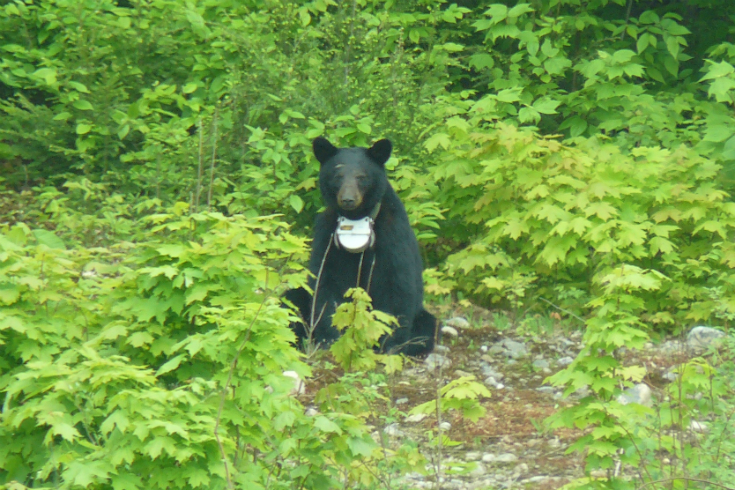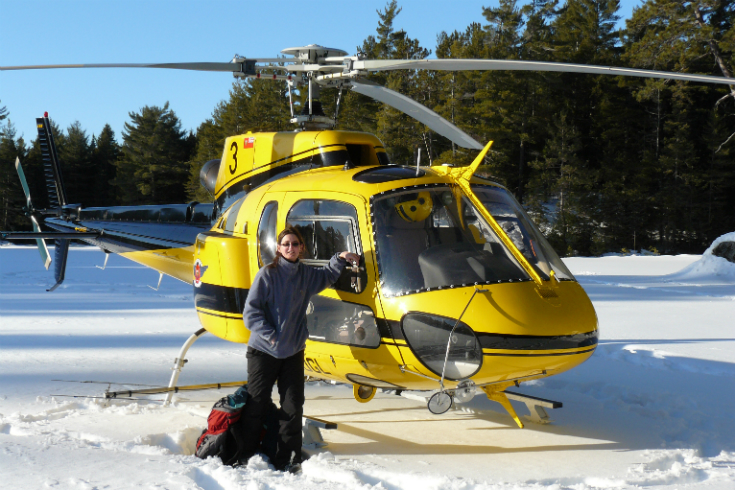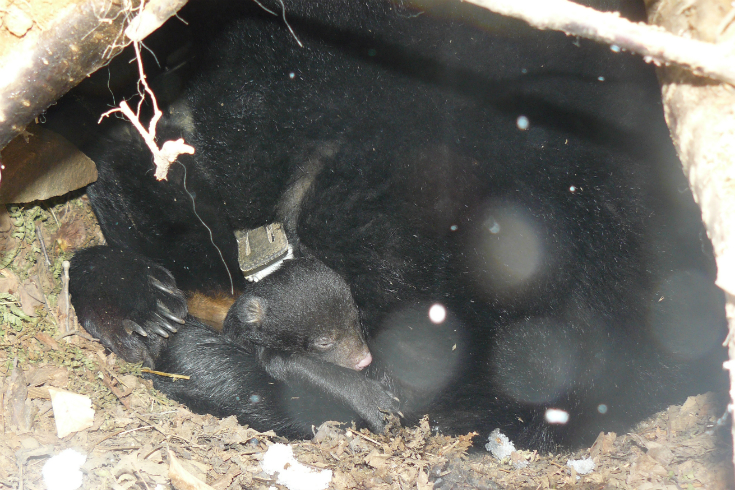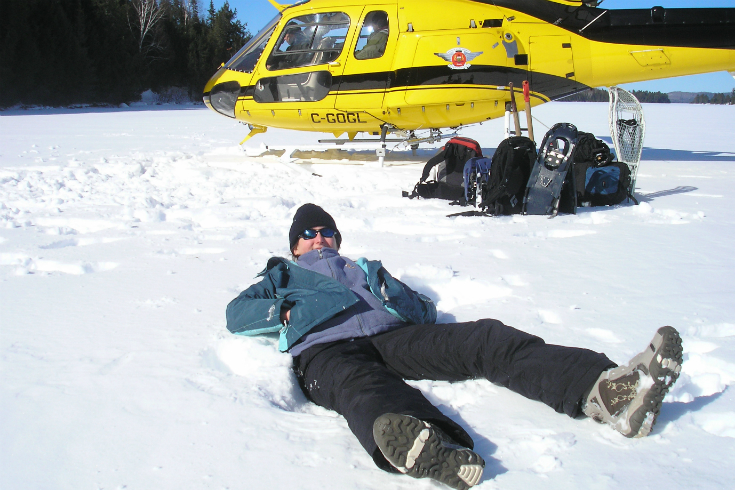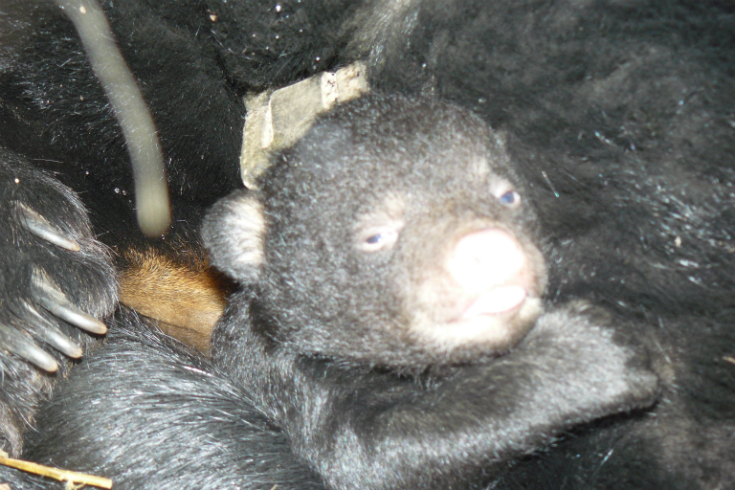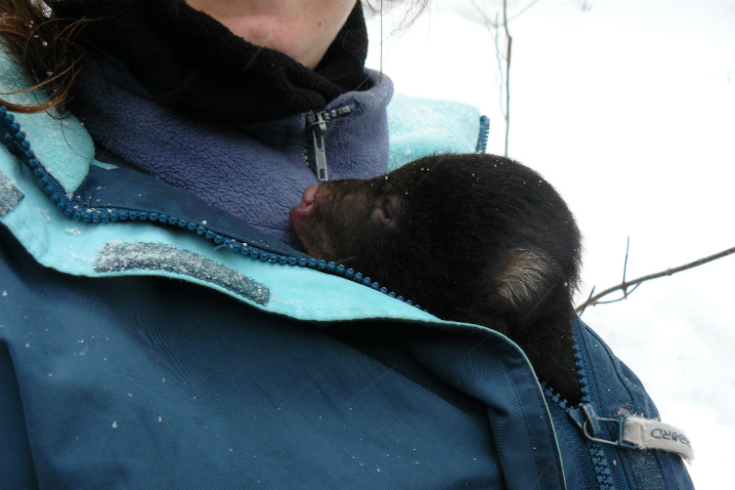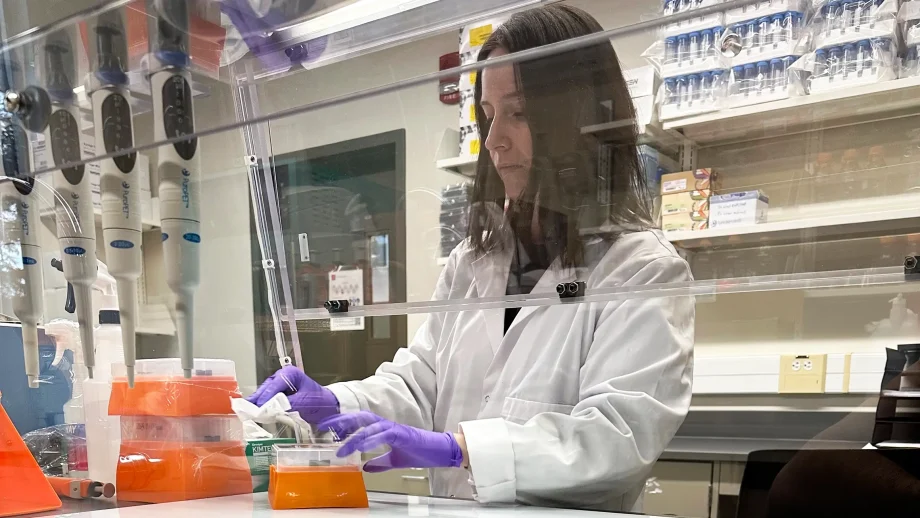UWinnipeg’s wildlife biologist Dr. Agnès Pelletier just published her research on American black bears in the prestigious scientific journal PLOS ONE. Pelletier’s paper Determining causes of genetic isolation in a large carnivore (Ursus americanus) population to direct contemporary conservation measures, looks to identify the reasons for low genetic diversity in American black bears on the Bruce Peninsula, ON.
“Low genetic diversity is not necessarily an issue,” explains Pelletier. “In conservation, the important thing is to pinpoint why genetic diversity is low in a population. Only when that is done, we can decide whether or not we should conduct mitigation actions.”
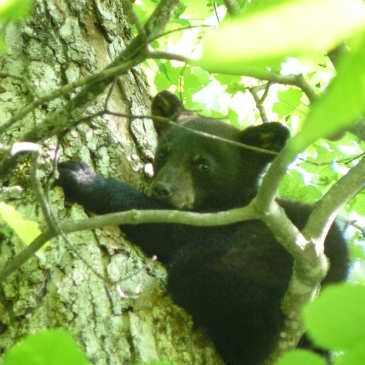
black bear, photo supplied
By creating a set of simulations, Pelletier found that low genetic diversity was due to a recent* reduction in population size combined with low migration between Bruce Peninsula black bears and bears from the rest of Ontario. Low genetic diversity seems recent and human induced, and not historically** or naturally induced.
As a conclusion to her paper, Pelletier suggests ways to help Bruce Peninsula black bears regain genetic diversity by introducing individuals from other Ontario locations. Pelletier will be presenting her research at a seminar at UWinnipeg for the Department of Geography on Wednesday, March 29, 2017 at 12:30 pm in room 5L24.
To read her paper please visit Determining causes of genetic isolation in a large carnivore (Ursus americanus) population to direct contemporary conservation measures at PLOS ONE. Pelletier can be contacted at asg.pelletier@gmail.com, and you can follow her on Twitter at @asgpelletier.
* recent in this context means a few bear generations (the decrease in population size occurred in the early 1900s).
**historically refers to several thousand years.
PLOS ONE publishes (https://www.plos.org/) a suite of influential Open Access journals across all areas of science and medicine.
Agnès Pelletier is a wildlife biologist who teaches biology, environmental sciences, and communication. Her interests include wildlife conservation and management, behavioural ecology, and genetics. For her MSc, she studied the mating strategies of Alpine marmots in France. Her PhD, conducted at Trent University, ON, focused on identifying historical and current gene flow patterns of American black bears, as well as modelling future population trends to inform management and conservation strategies. She also worked in Australia to assess the impact of human disturbances on humpback whales, in Central Asia to conduct snow leopard conservation, and in South Africa to study predator-prey relationships. Her current research, conducted with the UWinnipeg Lingle Lab, focuses on identifying the behaviours and individual characteristics that facilitate Chronic Wasting Disease transmission in mule deer and white-tailed deer.


